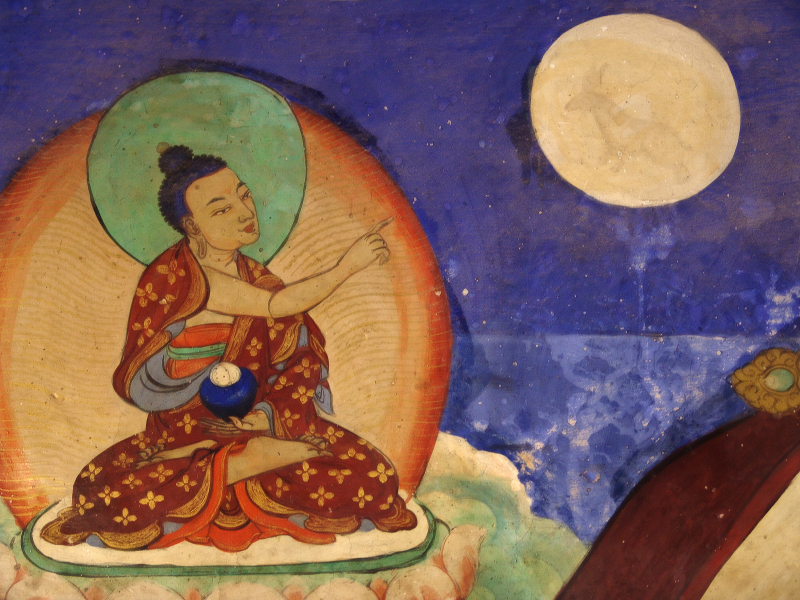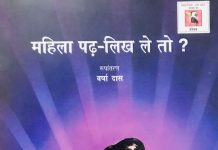In the 1990s people in Tamil Nadu came to speak rather intensely of the life, writings and work of Ambedkar. The upsurge that swept the dalits captivated me too. It was only then that I began to read his books. When the feature film on Ambedkar got made about this time, it was not showing in any cinema near where I lived—Utthiramerur in Kanchipuram district—nor in any place nearby. Determined to watch the film, I made a trip to Chennai and somehow searched down the cinema hall screening it. When things I had heard about him, and the books I had read by him all suddenly came alive on screen, I felt inspired. That Ambedkar and his writings inspired and motivated many like me can be evidenced in the rebellious dalit literature, the dalit movements and dalit politics of this period.
Now, when I get to read the accounts of those who lived with him, assisted him, those who saw him in the flesh and got to know him, those who had the fortune of listening to him speak and saw him eat, I swell with pride. We must both envy and thank those who had this fortune. Reading the various accounts in this book, we get to know about the rather ordinary pleasures this extraordinary dalit enjoyed.
Like a child
We feel guileless pride when we come across the instances of how he empathised with, understood and suffered the everyday pains of the ordinary person. The Ambedkar who helps a poor man lying by the road, brings him home, gives him clothes and food, and even offers him the job of a help—all this astonished me. One writer here, Polonius, speaks of Ambedkar sobbing like a child over the death of a pet dog in an accident. That he loved plants and gardening and had a special relationship with nature made me think of the relationship of dalits with nature.
Reading about his experiences of humiliation and exclusion since his schooldays, every dalit would recall her experiences of untouchability and feel heavy-hearted. Suffering without water to drink, or the difficulties Ambedkar faces in public transport or in accessing public spaces because he is an untouchable, make for a common shared experience with all dalits. There’s an episode here narrated by Shantabai Kamble, who was a schoolteacher like me. In 1932, after a political meeting in a Maharashtrian village, Ambedkar summons the organiser for a chat the next morning. Shantabai’s husband tags along. When they get there, Ambedkar is on his way to finish his morning ablutions, a jug of water in hand, the end of his dhoti hitched up on his shoulder. What follows is a discussion on a serious political issue. Clearly, Ambedkar never spared any moment from engaging with the concerns of the dalit movement. Reading this, I was reminded about how in my village that lacked toilets, I was always tense when I had to answer a call of nature, worried about men passing by.That such an extraordinary man experiences discrimination all his life for being born a mahar made me identify with him. He has himself chronicled the forms of untouchability that he encountered in his childhood, as well as how casteism in society prevented him from getting a place to stay in his homeland on his return from London. Alone, with no one to keep him company, he weeps when kicked out of the Parsi inn after it is discovered that he is an untouchable mahar. The pain that he must have endured, with nowhere to go, with no one to help him, causes great pain to us. We are gripped by his self-respect and the unshakeable confidence that made him surmount constant humiliation and discrimination. Ambedkar had said that untouchability would be abolished in the Constitution but it may not be abolished from our society even after a century. It is a slap on our face that even today dalits are unable to live with liberty in India.
Lover of books
From this genius we learn of his love for books, his speed in reading, his fortitude to bear sorrows, and his unceasing hard work. While the many voices that speak to us in this book have tried to portray him as larger than life, he frequently insists—to them, and us—that he is just another person. In a day and age where it has been assumed that the loudest proclamations eventually turn into truth, Ambedkar subjected everything to scrutiny and debate, wanting justice and truth to prevail in the end. It is not surprising that his residence in Delhi had been called the House of Justice. Remarking that it is not the lions that are slaughtered but goats, he called upon dalits not to be submissive and instead to assert themselves. He emphasized the importance of being brave and clever, and asked them to live with dignity and self-respect.
He wanted his people to turn education into a weapon. He advised dalits not to get married early in life, but to give priority to educating themselves and achieving a good station. In the pages of this book, he also comes across as someone with a very sharp sense of humour. When questioned by a ‘Nationalist’ why he wears European clothes instead of ‘national’ clothes, he retorts, ‘But what is the national dress?’ His interlocutor says, ‘The dress that our ancestors used to wear.’ To which Ambedkar’s reply is: ‘You cannot give preference to some ancestors over the others and if you go to the very first i.e. Adam and Eve, well, they did not wear any clothes. Would you follow them?’
Ambedkar who stressed on the importance of liberty, equality and fraternity, made these tenets central to his life. A boon granted to India, he lived his life as though he knew it was history being made. Asked by one of his attendants for a message, he invokes Carlyle saying that ‘men are like drains and streams, and great men are like rivers. As a river breaks through the mighty rocks of mountains and cuts through perilous woods to make its way, so does a great man find his way through myriad obstacles.’
Yet, despite the inspiration this volume gives me and despite the honour of writing this essay, the feeling that takes hold of my heart—when I think of the past or the present—is this. In India, even when dalits who suffer humiliation because of caste, untouchability and poverty, gradually do manage to rise in life and attain something, they are sidelined, isolated, and stigmatized for being ‘low’ caste. Ambedkar called for the annihilation of caste but it is caste that is annihilating the young Ambedkars who are emerging. This is the lesson the Rohith Vemulas and Muthukrishnans have left behind.
The above passage has been excerpted from ‘Ambedkar:The Attendant Details’ published by Navayana on the occasion of B.R. Ambedkar’s 126th birth anniversary on April 14, 2017.














